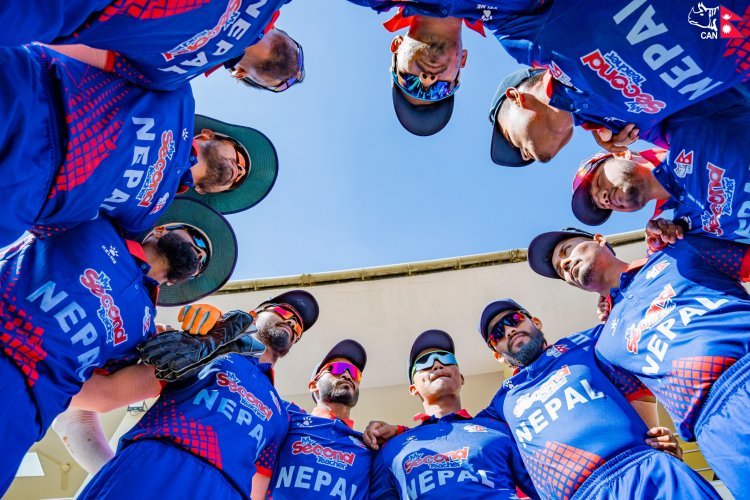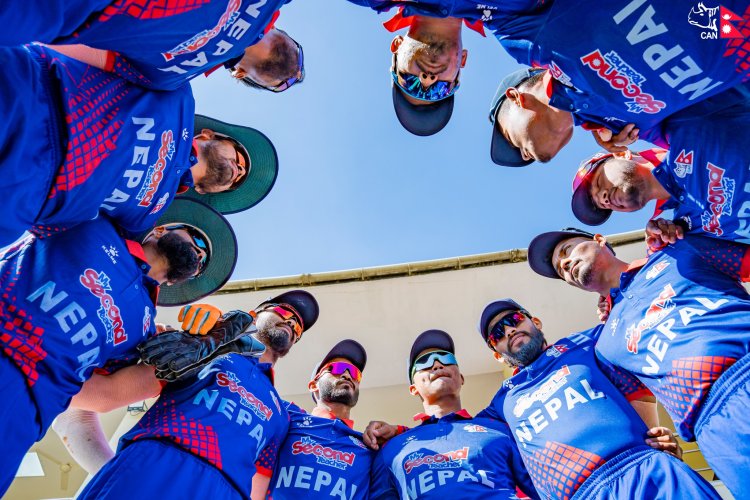The Rise of Cricket in Nepal: Economic Potential, Soft Power, and National Pride
Nepal's cricket boom is fueling economic progress and improving the country's international image. The sport generates jobs, promotes tourism, and inspires youth. While problems remain, strategic investments in domestic cricket, infrastructure, and talent development are critical to realizing cricket's promise as a driver of Nepal's prosperity.
Cricket is undoubtedly one of fastest growing sport around the globe.
In recent years, the Nepal men's national cricket team has gained attention for its growth and potential in international cricket. Governed by the Cricket Association of Nepal (CAN), the team participated in the T20 World Cup but faced challenges, including a near miss of victory during the latest tournament. Despite a lackluster performance, the overall sentiment is optimistic, with expectations for the team's rapid growth in the cricketing landscape. sports have been a great way to demonstrate soft power.
Power of sports as a turning point for Nepal's economy
When 15,000 fans celebrated pivotal moments at the ICC World Cup qualifier in Dallas, the world took notice. This is just one example; there are many instances where cricket in Nepal is impacting the country's economy. This success positively impacted tourism with more people wanting to visit the country. Nepal already has a good global brand due to its majestic mountains and hospital people; better positioning in global sports will only accelerate the process.
The soft power of sport: impact, demonstration, and influence
Direct Impact
- Job Creation: The rise of cricket has led to the creation of jobs in various sectors, including coaching, sports management, sports journalism, and equipment manufacturing.
- Infrastructure Development: The construction of cricket stadiums and training facilities has spurred economic activity and created employment opportunities.
- Media and Advertising Revenue: The growing popularity of cricket has led to increased advertising revenue for media outlets and sponsorship deals for cricketers and teams.
Indirect Impact
- Tourism: International cricket matches can attract tourists, boosting the hospitality industry and local economy.
- Brand Building: Successful cricket teams can enhance Nepal's image globally, attracting foreign investment and trade.
- Social Development: Cricket can play a role in social development by providing a platform for youth to engage in positive activities and develop leadership skills.

Challenges and Opportunities
Despite the positive impact, cricket in Nepal still faces challenges such as limited infrastructure, lack of professional leagues, and inadequate government support. However, with proper investment and planning, cricket has the potential to become a significant contributor to Nepal's economy.
Key areas for growth:
- Developing a strong domestic league: This would create a sustainable ecosystem for players and generate revenue.
- Leveraging cricket for tourism: Promoting cricket tourism packages can attract fans from around the world.
- Investing in grassroots development: Identifying and nurturing young talent is crucial for the long-term success of Nepali cricket.
Cricket's emergence in Nepal is more than just a sporting story; it's a story of economic opportunity, cultural impact, and national pride. As the Nepal men's national cricket team makes progress on the international level, the ripple effects are noticed throughout the country. Cricket is emerging as a potent tool for soft power and economic growth in Nepal, with benefits ranging from job creation and infrastructural development to increased tourism and global brand awareness.
However, in order to fully realize this potential, significant investments are required in areas such as grassroots development, domestic league establishment, and infrastructure. Overcoming existing difficulties and capitalizing on cricket's popularity can improve Nepal's economy while also establishing the country as a major player in the global sports landscape. As the sport expands, it has the potential to connect communities, boost national pride, and act as a catalyst for greater socioeconomic development.
What's Your Reaction?









































































































